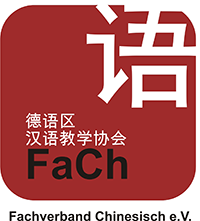Teaching advanced spoken Chinese. Integration of accuracy and cultural awareness in word choice
Autor/innen
Advanced Chinese learners, in general, are able to verbally express themselves and communicate with others on a variety of topics. In addition, they usually possess knowledge, to a certain extent, with respect to Chinese culture, such as history, cultural practice, and art. With such speaking skills and knowledge in Chinese language and culture, advanced Chinese speakers are not often concerned with getting meaning across. However, they can find it challenging to be precise in word choice, including both structural patterns and vocabulary. As a result of being imprecise, not necessarily being wrong, utterances of advanced Chinese learners can be grammatically correct but idiomatically or culturally inappropriate. Indiscriminate use of words is not uncommon and in most cases not predictable as the range of conversation topics among advanced Chinese learners is widened rapidly as they progress daily. Therefore, the emphasis of pedagogical teaching approaches to treat this type of intricate problem needs to be placed not only on the introduction of linguistic properties of certain vocabulary or structures, but, more importantly, on effective allocation of second language learners' attentional resources towards how native speakers of Chinese perform pragmatically. In the paper, a collection of common mistakes regarding word choice made by advanced Chinese speakers is presented. Following the discussions on these mistakes, pedagogical tasks are introduced which can be utilized in Chinese classrooms to promote grammatically correct and culturally appropriate speech.

Dieses Werk steht unter der Lizenz Creative Commons Namensnennung - Weitergabe unter gleichen Bedingungen 4.0 International.

Dieses Werk steht unter der Lizenz Creative Commons Namensnennung - Weitergabe unter gleichen Bedingungen 4.0 International.







